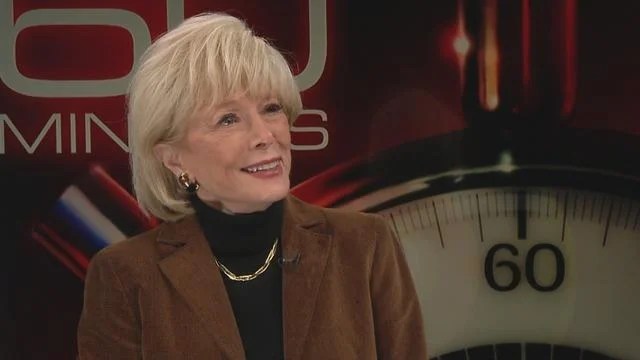The world of journalism is a dynamic and ever-evolving landscape, and at the forefront of this evolution are the esteemed reporters of 60 Minutes. Known for their hard-hitting investigative journalism and compelling storytelling, these reporters have become household names. Their dedication to uncovering the truth and delivering in-depth analyses of current events has garnered them not only respect but also a loyal audience. Each segment is a testament to their commitment to journalistic integrity and the pursuit of knowledge, making 60 Minutes a staple in American television.
With a legacy spanning several decades, the 60 Minutes reporters have covered a myriad of topics that reflect the complexities of our society. From political scandals to humanitarian crises, their work has shed light on issues that are often overlooked. The program's unique approach combines thorough research with engaging narratives, ensuring that viewers are not only informed but also captivated by the stories being told. This recipe for success has solidified the show's place in the pantheon of investigative journalism.
As we delve deeper into the lives and careers of these remarkable individuals, it is essential to highlight the impact they have made not just as journalists but as advocates for truth and justice. The stories they choose to tell resonate with audiences, inspiring critical conversations and often prompting action. In the following sections, we will explore the biographies of some of the most notable 60 Minutes reporters, examining their journey, achievements, and the legacy they continue to build in the world of journalism.
Who Are the Most Notable 60 Minutes Reporters?
Throughout its history, 60 Minutes has been home to many acclaimed journalists. Some of the most notable figures include:
- Mike Wallace
- Morley Safer
- Diane Sawyer
- Lesley Stahl
- Scott Pelley
- Anderson Cooper
What is the Background of Mike Wallace?
Mike Wallace is often regarded as one of the pioneers of investigative journalism in television. His career spanned more than seven decades, during which he interviewed some of the most influential figures of the 20th century.
| Personal Details | Biography |
|---|---|
| Name | Mike Wallace |
| Date of Birth | May 9, 1918 |
| Place of Birth | Brooklyn, New York, USA |
| Education | University of Michigan |
| Career Start | 1940 |
| Notable Work | 60 Minutes |
| Date of Death | April 7, 2012 |
What Impact Did Mike Wallace Have on Journalism?
Mike Wallace's style of questioning and his tenacity in pursuing the truth set a new standard for television journalism. His interviews often revealed surprising insights, making him a respected figure among both peers and audiences. His legacy is evident in the way modern journalists approach interviews and investigative reporting.
How Did Lesley Stahl Shape 60 Minutes Reporting?
Lesley Stahl has been a prominent figure on 60 Minutes since she joined the show in 1991. Her reporting has covered various critical issues, ranging from politics to social justice.
What Are Some Key Achievements of Lesley Stahl?
- Emmy Award-winning journalist
- Author of the best-selling book "Becoming Grandma"
- First female correspondent for CBS's 60 Minutes
How Has Stahl’s Approach to Journalism Influenced Others?
Stahl's empathetic interview style and her ability to tackle tough subjects with grace have influenced many young journalists. Her commitment to uncovering the truth while maintaining respect for her subjects has become a model for many in the field.
What Challenges Do 60 Minutes Reporters Face?
Despite their success, the reporters of 60 Minutes face numerous challenges in their pursuit of truth. These include:
- Political Bias: Navigating the landscape of journalism with increasing accusations of bias.
- Access to Information: Gaining access to important figures and information can be difficult.
- Public Scrutiny: The intense scrutiny of their work can lead to criticism and pressure.
What Techniques Do 60 Minutes Reporters Use to Ensure Accuracy?
To maintain the integrity of their reporting, 60 Minutes reporters employ several techniques:
- Fact-checking: Rigorous verification of facts before airing a story.
- Multiple Sources: Relying on multiple sources to confirm information.
- Expert Opinions: Consulting experts to provide context and depth to stories.
How Do 60 Minutes Reporters Build Trust with Their Audience?
Building trust is essential for 60 Minutes reporters. They achieve this through transparency, consistent quality reporting, and by engaging with their audience through social media and public appearances. Their commitment to ethical journalism has fostered a loyal viewership that relies on them for credible news.
What Future Trends Are Emerging in Investigative Journalism?
As the landscape of journalism continues to evolve, several trends are shaping the future of investigative reporting:
- Digital Journalism: The rise of online platforms is changing how stories are reported and consumed.
- Data Journalism: The use of data to uncover stories and provide insights is becoming more prevalent.
- Collaborative Investigations: Journalists are increasingly working together across platforms to tackle complex issues.
How Are 60 Minutes Reporters Adapting to These Changes?
The reporters of 60 Minutes are adapting to these changes by embracing new technologies and methodologies. They are incorporating digital tools into their reporting processes and exploring new ways to engage with their audience, ensuring that their journalism remains relevant in a rapidly changing world.
What Legacy Will 60 Minutes Reporters Leave Behind?
The legacy of 60 Minutes reporters will likely be one of integrity, courage, and commitment to truth. As they continue to tackle pressing issues and hold power accountable, they inspire future generations of journalists to uphold these values. Their work not only informs the public but also empowers individuals to engage with the world around them.
In conclusion, the 60 Minutes reporters are more than just journalists; they are storytellers, advocates, and truth-seekers. Their impact on journalism is profound, and their contributions will resonate for years to come, shaping the future of investigative reporting and informing audiences about the world we live in.




